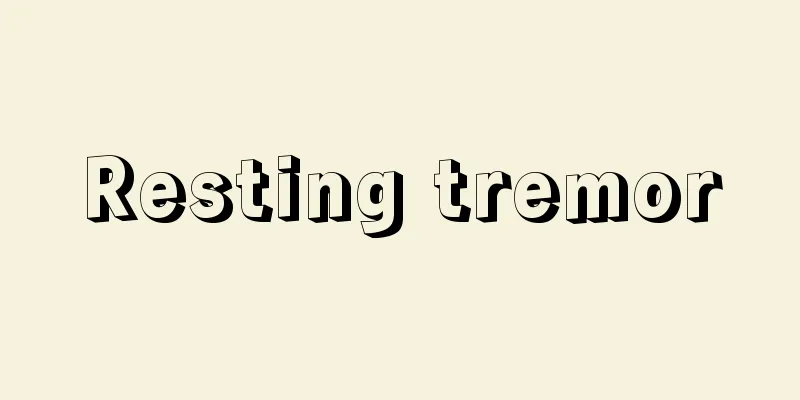Vasiliy Pavlovich Aksyonov

|
Russian (Soviet) writer. Born in Kazan. Graduated from Leningrad Medical University. His parents were arrested during the Stalin era, and he had a difficult childhood. His mother was the writer Evgeniya Ginzburg (1906-1977), and he spent several years in Magadan, the Siberian Far East, where she was exiled. He became famous in 1960 with the publication of his novel Classmates, and subsequently published a series of novels, including Ticket to the Stars (1961) and the short story Halfway to the Moon (1962), becoming a standard-bearer for the new Soviet literature of the 1960s. In his early works, he boldly portrayed the new postwar generation yearning for Western culture, which drew attack from conservative critics, but enthusiastic support from young people. However, after his 1964 novel, "My Friend, It's Time to Tide," he left youth literature behind and wrote the play "Always for Sale" (1965) and the novella "Barrels of Stock" (1968), incorporating grotesque and fantastical techniques. This style of writing was seen as a deviation from the socialist realism officially recognized by the Soviet Union, and his career as a writer became increasingly difficult. In 1979, he played a central role in the independent publication of the collection of writers' essays, "Metropolis," which was severely criticized as anti-establishment activity. The following year, in 1980, he was forced to go into exile, and thereafter settled in the United States, where he continued his creative work while teaching at a university in Washington, DC. Among his major works published in America after his defection are the full-length novel "Burns" (1980), which depicts the modern spiritual history of the Soviet Union through the intersecting narratives of five characters, the anti-utopian satire "Crimea" (1981), the full-length novel "Smile, Please" (1985), which was modeled on the incident in which his anthology "Metropoli" was suppressed, and the autobiographical account of his experiences in America "Looking for a Sad Baby" (1987). Through these works, Aksyonov has always taken real-life subjects, but has also experimented with various avant-garde techniques, opening up new possibilities for the contemporary Russian novel. After perestroika (reconstruction), his works were fully reevaluated in Russia, and both his past and new works were published in Russia one after another. His Russian (former Soviet) citizenship, which had been revoked immediately after his defection, was restored in 1990, and he continued to live in the United States, but continued to travel freely between Moscow and Washington, DC. Works he produced since the late 1980s include The Yolk of an Egg (1989), which he first wrote in English and then translated into Russian himself, Moscow Chronicles (1994), a long novel depicting a Moscow intellectual family living in the Stalin era, and A Sweet Life (1998), a collection of his thoughts. [Mitsuyoshi Numano January 19, 2016] "New Soviet Literature 5: Aksyonov/Grazilin," translated by Yasui Yuko et al. (1974, Keiso Shobo)" ▽ "Star Ticket," translated by Kudo Seiichiro (Chuko Bunko)" ▽ "Don't Speak, Sing," by Shimada Masahiko (1987, Fukutake Shoten)" ▽ "Bright Night, Dark Day: Women in the Soviet Gulag," by Evgenia Ginzburg, translated by Nakata Hajime (1990, Shueisha)" [Reference] |Source: Shogakukan Encyclopedia Nipponica About Encyclopedia Nipponica Information | Legend |
|
ロシア(ソ連)の作家。カザンに生まれる。レニングラード医科大学を卒業。スターリン時代に両親が逮捕され、厳しい幼年時代を送る。母親は作家のエウゲニヤ・ギンズブルグЕвгения Гинзбург/Evgeniya Ginzburg(1906―1977)で、彼女の流刑地のシベリア極東部マガダンでも数年を過ごした。1960年に長編『同期生』を発表して一躍有名になり、以後、長編『星の切符』(1961)や短編『月への道半ば』(1962)などを次々と発表し、1960年代の新しいソ連文学の旗手となった。初期の作品で彼は、西欧の文化にあこがれる新しい戦後世代を大胆に描いたため、保守的な批評家からは攻撃されたが、若者たちから熱烈な支持を受けた。 しかし、1964年の長編『友よ、さあ潮時だ』を最後に青春文学と決別し、グロテスクで幻想的な手法を取り入れながら戯曲『いつでも売ります』(1965)や、中編『滞貨した樽(たる)』(1968)などを書く。こういった作風はソ連の公認の社会主義リアリズムから逸脱するものとみなされ、作家活動はしだいに困難になっていった。1979年、作家たちの文集『メトロポリ』の自主出版の際に中心的な役割を果たし、それが反体制的活動として厳しく批判された。そして翌1980年には亡命せざるをえない状況に追い込まれ、以後アメリカ合衆国に定住、ワシントンDCの大学で教えながら、創作活動を続けた。 亡命以後アメリカで出版されたおもな作品としては、5人の登場人物の交錯する語りを通じてソ連の現代精神史を描き出した長編『火傷(やけど)』(1980)、反ユートピア的風刺小説『クリミア島』(1981)、文集『メトロポリ』が弾圧された事件をモデルにした長編『はい、笑って』(1985)、自伝的アメリカ体験記『悲しきベビーを求めて』(1987)などがある。これらの作品を通じてアクショーノフはつねに現実に題材をとりながらも、さまざまな前衛的な手法上の実験を試み、現代ロシア小説の新しい可能性を切り拓(ひら)いてきた。 ペレストロイカ(建て直し)後はロシアでも全面的に再評価され、過去の著作も新作もロシアで次々と出版されるようになった。そして、亡命直後に剥奪(はくだつ)されたロシア(旧ソ連)市民権も1990年には回復し、その後、アメリカに暮らし続けながらも、モスクワとワシントンDCの間を自由に行き来する生活を続けた。1980年代末以降の作品としては、最初に英語で書き、その後、自らロシア語訳した『卵の黄身』(1989)、スターリン時代を生きたモスクワのインテリ一家を描く大河小説『モスクワ年代記』(1994)や作家の思索の集成『新しい甘い生活』(1998)などがある。 [沼野充義 2016年1月19日] 『安井侑子他訳『新しいソビエトの文学5 アクショーノフ/グラジーリン』(1974・勁草書房)』▽『工藤精一郎訳『星の切符』(中公文庫)』▽『島田雅彦著『語らず、歌え』(1987・福武書店)』▽『エヴゲーニヤ・ギンズブルグ著、中田甫訳『明るい夜暗い昼――女性たちのソ連強制収容所』(1990・集英社)』 [参照項目] |出典 小学館 日本大百科全書(ニッポニカ)日本大百科全書(ニッポニカ)について 情報 | 凡例 |
Recommend
Hellenes (English spelling)
A general term used by Greeks to refer to their ow...
Albert von Le Coq
1860‐1930 German orientalist. Born in Berlin. In 1...
Tiarella cordifolia (English spelling)
… [Michio Wakabayashi]. … *Some of the terminolog...
Uganda National Congress
… In 1949, after the Second World War, popular ri...
Agha Jali - Agha Jali
...At the foot of the Zagros Mountains, there is ...
Gazetchia - Gazetchia
…The original meaning of the word Gazette is said...
Amazon Plain - Amazon Heiya
...This plateau is also home to Brazil's high...
Onioshidashi - Onioshidashi
The name of the lava distributed on the northern ...
Boldrewood, R. (English spelling) BoldrewoodR
...The representative poet of the counterculture ...
fictitious parent-child relationship
A relationship in which people who are not biolog...
Provisional delivery - kariwatashi
When a carrier or warehouseman delivers goods or d...
fox and geese
…This game became popular during the Edo period, ...
One rope - Ipponnawa
…It was the mainstream of acrobatics around the t...
darabukka
...A single-sided drum in the shape of a sake cup...
Poverty Story - Poor Story
This is Kawakami Hajime's representative work...









